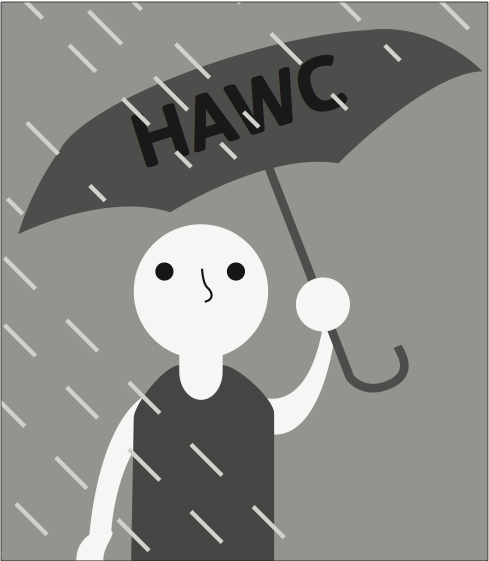One in 12 university students have contemplated suicide, and two thirds of those don’t seek treatment at all, according to the National Data on Campus Suicide and Depression.
This nationwide struggle has been reflected within the Seattle U community. Counseling and Psychological Services, better known as CAPS, has seen a dramatic increase in the number of students needing assistance this past year. As the department is stretched thin, they were unable to meet for an interview.
Junior public affairs and philosophy major Rick Reyes has noticed the lack of resource availability for mental health issues. Being a Resident Assistant, he has been exposed to residents needing his aid in what would often be the job of someone at CAPS or other counseling centers.
Reyes believes that the strain on CAPS is a result of high volume of students appointments compounded by the department’s limited staffing.
“I think this is a problem with every department at SU,” Reyes said. “The fact that every department I feel like doesn’t have enough people running it, especially with the mental health area, I feel like they try, and this may not be the case, but they try to outsource to different sources.”
Members of Seattle U’s growing student body have been left in the dark about what to do concerning the lack of mental health assistance available.
In an effort to address these current limitations on campus, HAWC opened its doors on Tuesday, Feb. 21 and created a safe space for students to discuss suicide and the stigma surrounding it. That evening, students were able to connect with each other and further understand suicide by doing what society has discouraged many from doing: talking.
But the conversation didn’t end when the event was over. Erin Moynihan, junior social work major, emphasized the importance of keeping the conversation going, and how it’s a necessary first step in de-stigmatizing suicide.
“Starting that conversation is one of the most important parts and I think the stigma is a lot like very hush hush topic,” Moynihan said. “It’s kind of seen as a personal decision rather than a psychological, chemical disease and I think that educating people is the most important thing to do.”
Moynihan once volunteered at a crisis clinic, which is a hotline that allows those needing to talk to someone to do so. She shared that because of her experience, she learned one of the most efficient ways to prevent suicide is to talk with the person having suicidal thoughts.
“Talking about [suicide] is one of the most important ways to prevent suicide,” Moynihan said. “People who are experiencing suicidal thoughts, if no one talks to them about it, they feel more alone in their thoughts and don’t feel like they have a space to tell people about those thoughts.”
According to the discussion at the event, through talking, we can deconstruct the stigma and prevent the isolation perpetuated by society in its response to suicide.
First year science and psychology major Kristen Webber shared how her story and experience with suicide has revealed to her as a student what these stigmas are, and because of them, why having that conversation may be difficult within the university community.
“In my experience, the bad part of the stigma is the fact that people who are having suicidal thoughts are having this stigma because they’re following a pattern that might now be coherent to what the ‘norm’ is for suicide,” Webber said. “In our society, we don’t take it very seriously.
She spoke of the ways people speak in less explicit language about their suicidal thoughts because of the stigma.
“If something comes up we say, ‘I wish I could go to sleep and never wake up.’ That’s essentially saying, ‘I’m suicidal,’ but saying it in a way that is very disguised and very nonchalant,” she said. “[To] things like that, we don’t pay attention.”
Webber further explained that because of this nonchalant attitude, we become desensitized to the seriousness of suicide, so when people reach out for help, they are labeled as attention seekers by their peers.
“I’ve heard that a lot, that suicidal people are ‘attention seeking,’ and a part of me says a part of that is true, they are attention seeking, but they are attention seeking because there is something wrong,” Webber said.
Webber further noted that the problem deepens because when we begin to realize the suicidal signs, we are unprepared to respond appropriately.
“We don’t read the signs correctly and when we do read the signs we don’t have that training to be able to say ‘Hey, what you’re going through is okay’ or ‘Hey, you need to go to a hospital now.’”
For students looking for resources on campus, the CAPS office is open Monday through Friday 8 a.m. to 4:30 p.m. Urgent hours are weekdays at 10 a.m. and 3 p.m. HAWC, located on the third floor of the Student Center, is open weekdays from 8:30 a.m. to 4:30 p.m.
Shelby may be reached at
entertainment@su-spectator.com








